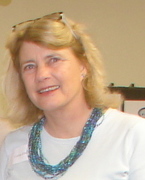Many doctors are drawn to the field of medicine at an early age. But how do plastic surgeons choose their particular area of specialty? Is it true that many are in it mainly for the income?
There’s no denying that it can be tough to make a go of it these days in a more mainstream field. With high overhead costs, including malpractice insurance, endless bureaucratic issues with insurance companies and low Medicare reimbursement rates, many internists and general practitioners just aren’t doing well, explained Dr. Stephen T. Sigmund, an internist practicing on California’s Central Coast.
“It's no wonder that med students these days want to go into one of the elective fields like dermatology, orthopedics and ophthalmology,” he says. “Yes, and plastic surgery.”
So, yes, no doubt many plastic surgeons choose their specialty to ensure a healthy revenue stream. That said, you might be surprised by some of the other reasons they give for selecting their field.
Dr. David Kaufman, a Sacramento plastic surgeon, chose his specialty with an eye toward family life. "My children are young, and I want to be sure to have time to spend with them," he explained. "When you're doing cosmetic surgery, there are few, if any, urgent situations that take you away at a moment's notice, and your weekends are often your own. My practice allows me to keep my family as a top priority in my life."
Other plastic surgeons select their field out of a deep-seated passion. Dr. Loren Eskenazi and her staff are fully focused on the health and well being of women; in fact, their San Francisco-based organization is called Women’s Plastic Surgery. They perform many breast procedures including several approaches to breast reconstruction and surgery to address congenital deformities as well as routine breast augmentation. According to their website, they “understand the issues that their patients face regarding body image and self esteem.”
If you pay attention to plastic surgeons’ websites, you may notice that many say they were drawn to their specialty for the chance to combine art and science. Indeed, you can find so many references to the notion that it starts to sound trite. But in many cases it’s true—plastic surgeons do have an eye for aesthetics, and many are artists. Two plastic surgeons in Texas come to mind, one who practices in Austin is a watercolorist; another in Dallas is a sculptor. Still others find outlets for their creative sides in music and writing.
Finally, many discovered the power of plastic surgery while on a rotation during their residency. Sacramento’s Kaufman, expanding on his choice of career, said he learned how satisfying it is to have a positive impact on patients’ lives. He said he loves “working with men and women and helping them feel better about themselves,” and he added “the creativity and artistry in the surgery keeps me passionate about my career.”
This is a good area to probe during a plastic surgery consultation. Naturally you will have many other things to find out—details that are perhaps more important. But asking about why your prospective surgeon chose the field can give you clues about his or her motivations and help you decide if the two of you are a good match.
Resources:
Women’s Plastic Surgery. Web. April 27, 2011. http://www.womensplasticsurgery.com/index.htm
Personique. Web. April 27, 2011.
http://www.personique.com/thomas-a-narsete.php
Ronald M. Friedman, M.D. “Life Imitates Art.” Web. April 27, 2011.
http://www.plasticsurgerydallas.com/life-imitates-art.php





Add a CommentComments
There are no comments yet. Be the first one and get the conversation started!